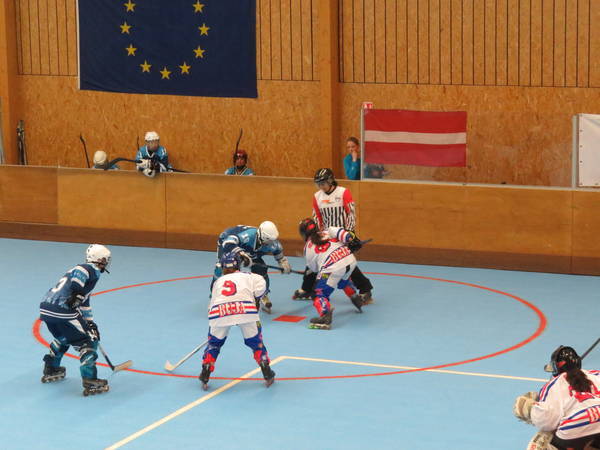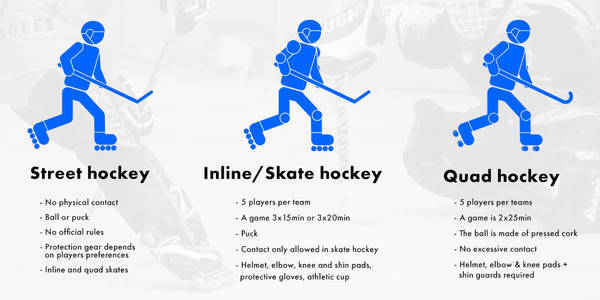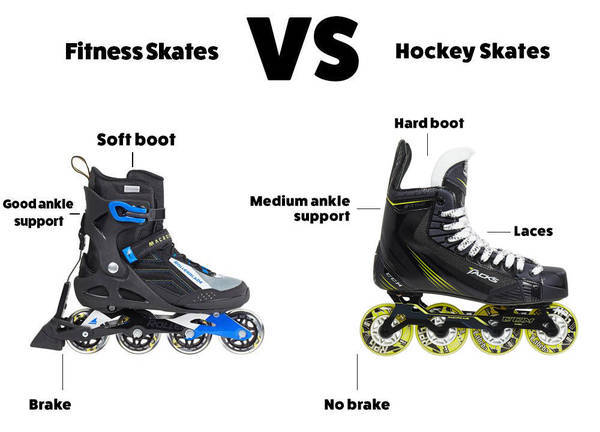Roller Hockey: Fast-paced and High-intensity

Looking for a fast-paced and action-packed sport that combines speed with technique? Or maybe you want to stay in shape during the ice hockey off-season? Perhaps you’re looking for a sport that you can take to the street and play anywhere?
Roller hockey is played everywhere from streets to hockey arenas. Here you’ll find a short presentation on the three main branches of roller hockey.

The Basics
All branches of roller hockey are not only action-packed but also a great way to practice your basic techniques such as braking, accelerating, and turning. If you are thinking about getting into roller hockey, it doesn't take much to get a game going on.
“I started out playing it on the street with the older boys. All we had was two jerseys, a flat street, a pair of skates, a hockey stick, and a ball. That’s the great thing about this sport. You don’t have to be a member of a club and practice at a certain hour. You can just call your friends or go to the hockey field and see if there’s a game going on,” says Jacob Lyby, roller and ice hockey player.
Boot
Hard hits. Roller hockey skates are often exposed to impacts with other players’ sticks & the puck/ball. That’s why the boots are made with extra padding and hard materials like felt & ballistic nylon to keep your foot safe.
The Frame
Light and tight. The fast-paced gameplay and ever-changing direction mean that you’ll need a very agile pair of skates. A light and short aluminum frame will give you great maneuverability and speed. An aluminum frame is also very durable and will not torque when you make those sharp turns. Besides that, it provides direct power transfer.
Some frames offer you the possibility to have a setup with different sized wheels. This will keep you low to the ground, providing you with speed, control, and a shorter braking distance.
Wheels
Get a grip. A big part of hockey is doing tight maneuvers and sudden moves to outsmart or stop your opponent - And you’ll need a proper grip to do so. We recommend a soft pair of wheels if you play indoors and a harder pair of wheels if you play outdoors.
Control is key. The size of the wheels determines the maneuverability of the skate. On a "traditional" pair of hockey skates with four wheels, we recommend small wheels which will provide you with great control, balance, and stability.
Bearings
Keep moving. Speed is crucial in hockey, and you’ll need a good set of bearings to keep up with your opponents. We recommend a pair of ABEC 7, ABEC 9, ILQ 7, or ILQ 9 bearings. Check out our guide for bearings here
Protection Gear
Keep safe. The amount of protection gear needed is determined by the kind of roller hockey you are playing. In Inline/skate hockey, you’ll need a helmet, mouthguard, elbow and knee pads, protective gloves, a jock strap, and shin pads. In quad hockey, you’ll need a helmet, elbow and knee pads, and shin guards. In street hockey, the protection gear depends on the player's preferences. Find all you’ll need here.
Ball/Puck
What to choose. A puck is faster and more lively than a ball. It’s primarily used indoors, but you can also get pucks for outdoor usage. The surface has to be smooth when you use a puck. If you use it on rough surfaces with holes or cracks in it, the puck will bounce around. A ball is more suitable and does not “take flight” as easily. Furthermore, a ball is easier to handle on surfaces like asphalt.
The Hockey Stick
How high. That's the question. A rule of thumb is that the stick has to go from the floor to your chin to fit you perfectly - Read more about what to consider when buying a hockey stick here

